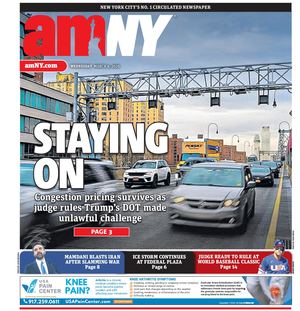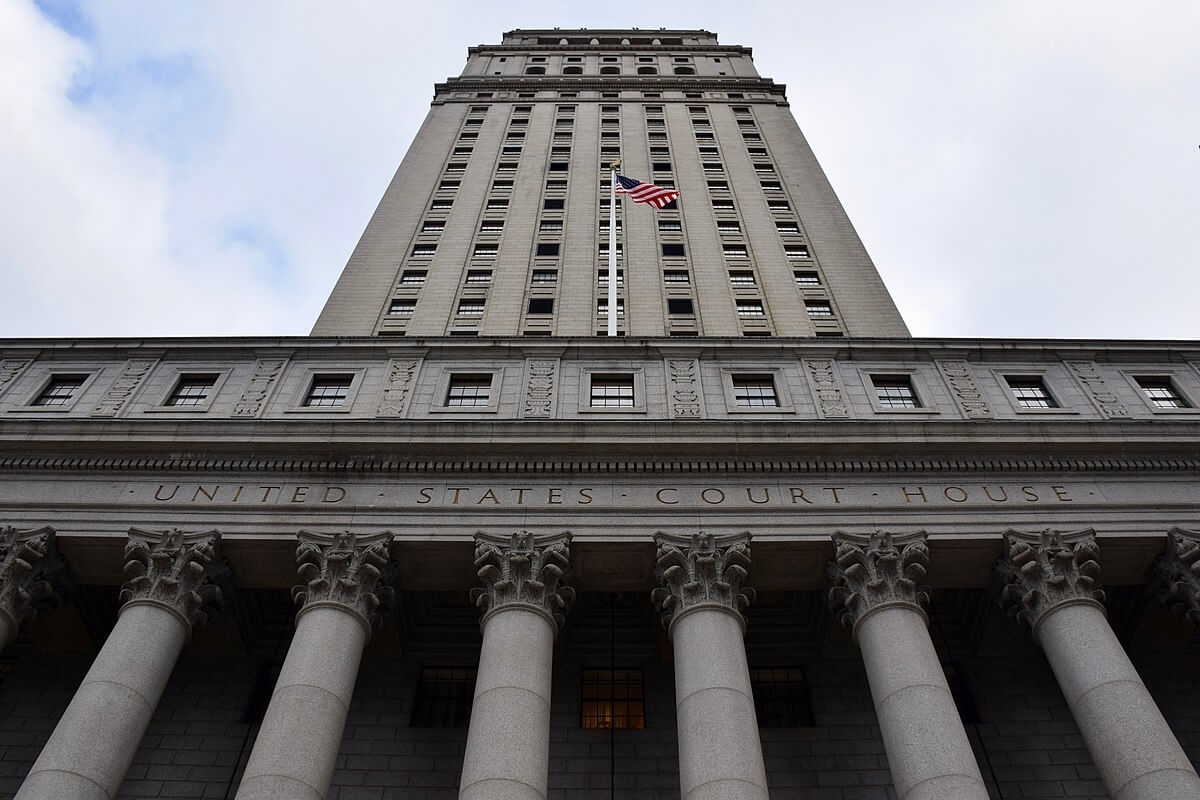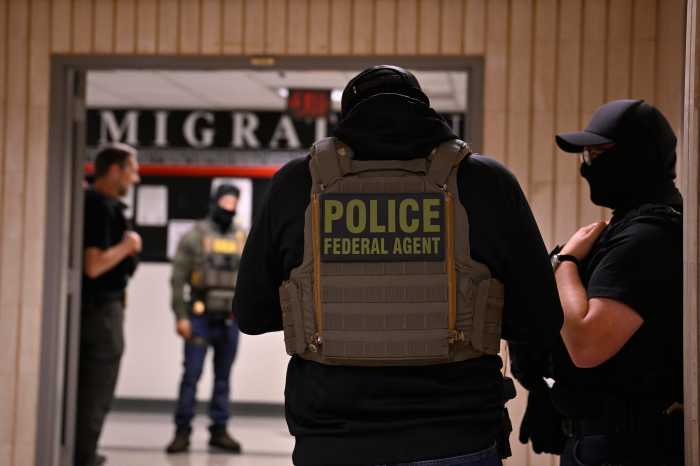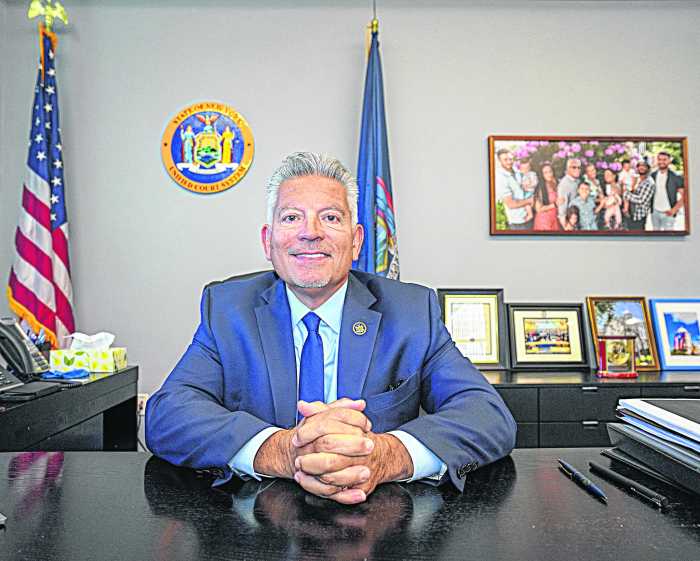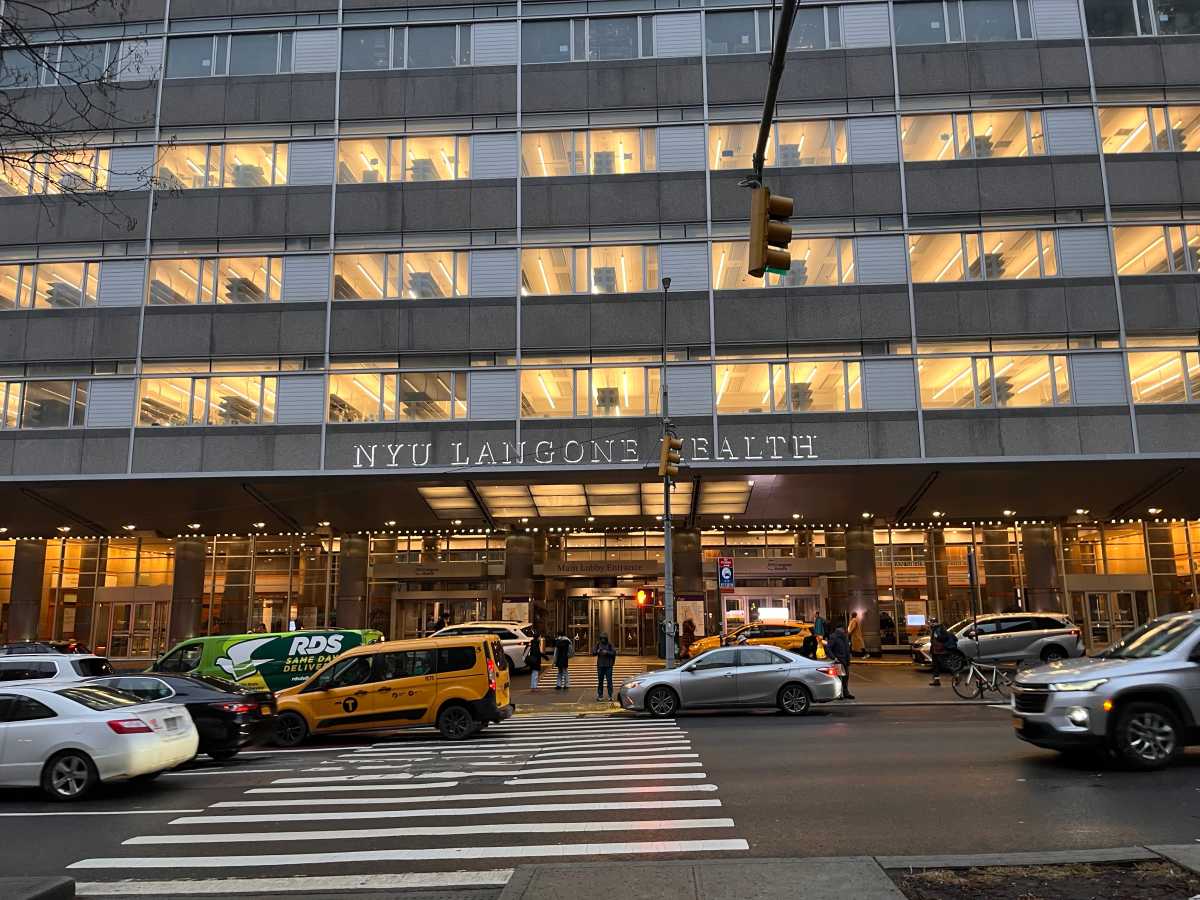The lawyers’ union for the Legal Aid Society, Association of Legal Advocates and Attorneys – United Auto Workers Local 2325, notified Legal Aid Tuesday evening that union leadership had voted to terminate the collective bargaining agreement that prevented lawyers from striking.
The agreement is set to expire on July 18 — 10 days after notification — at which point the union may go on strike. In a vote last month, union membership overwhelmingly authorized a strike amid stalled negotiations with management. The union’s contract expired July 1, but both parties have stayed at the bargaining table in hopes of reaching an agreement.
Jane Fox, the head of the union at Legal Aid, said that there has “not been significant movement on our remaining core demands, primarily around salary and retirement benefits.”
“The folks who met decided that this is just a necessary step to show to our employer and also the city that the union is prepared to do what is necessary to win a fair contract for our members,” Fox said.
Fox said that though the union and Legal Aid have made “good progress” on some demands, the organization is not meeting the union’s more central demands for higher pay, lower caseloads, and stronger retirement benefits. In an offer to the union on June 27 — days before the contract’s expiration and about two months after negotiations began — Legal Aid proposed an average 7% salary increase for attorneys who have been at Legal Aid for over four years, with more senior attorneys getting higher raises. Fox raised concern at the time that the offer “doesn’t keep up with inflation or the cost of living.”
In regard to retirement benefits, the union is asking the organization to increase pension contribution for Legal Aid attorneys, who do not see the same contributions as their publicly-employed counterparts. Legal Aid employees, though city contracted, are not public employees and are not eligible for government pension contributions.
Fox said that the salaries, pensions, and workloads of Legal Aid attorneys are not on par with counterparts across the city. Thinner salaries and benefits, Fox said, often lead senior lawyers to look elsewhere for work, leaving Legal Aid with less experienced legal teams.
“There’s always going to be young law students who want to come and work in legal services and live in New York City and work for the Legal Aid Society,” Fox said. “They do not have a problem recruiting new lawyers. The problem we have is retaining staff once they’re a few years into the job, once they have some experience, once they’re starting to hit those like milestones of raising a family, thinking about trying to save, to buy an apartment or a home.”
Tuesday’s bargaining session, Fox said, was “productive” and shorter than previous sessions. When the union and Legal Aid return to the table on Friday, the union will be focused on their core demands. Fox said the union was frustrated that management has yet to respond to the attorneys’ latest salary proposal and that she expects Friday’s session to be “very long.”
New York State Attorney General Letitia James, a former member of the union, threw her support behind Legal Aid’s attorneys on Wednesday.
“Legal Aid attorneys are on the front lines of the fight for justice, defending and championing the rights of our most vulnerable New Yorkers,” James wrote in a statement. “As they work to protect their clients’ wellbeing, they too deserve dignity, fair pay, and conditions that reflect the value of their tireless service. I am proud to stand with these workers as they fight for a contract that honors their sacrifice and unwavering commitment to justice.”
In a statement to amNewYork, Twyla Carter, attorney in chief and CEO at Legal Aid confirmed that the union had provided notice of collective bargaining agreement termination.
“ALAA’s decision to officially terminate the collective bargaining agreement does not change our full commitment to continuing negotiations in good faith,” Carter wrote. “We agree with ALAA that we have made good progress across the table to date.”
Legal Aid has pushed City Hall for greater funding and has cited a lack of public funds as the central reason for the organization’s relative austerity. Carter wrote that Legal Aid has, in recent years, “made meaningful progress toward addressing longstanding funding issues stemming from decades of government underfunding, but we fully acknowledge that a significant gap remains in providing staff with wages commensurate with their invaluable work.”
“Our goal remains the same, which is to reach a fair agreement that recognizes the vital contributions of our staff attorneys, strengthens the long-term sustainability of a career at Legal Aid,” Carter wrote.
Noah Pransky, a spokesperson for the Mayor’s Office of Criminal Justice, pointed amNewYork to a statement sent last week regarding union negotiations.
“To minimize disruption to the justice system, we continue to work with our other legal defense partners to prepare for any potential challenges and impact of a strike,” the statement reads, noting that Mayor Eric Adams has added $20 million to the budget to “help legal service providers hire more staff to address increased caseloads and adjust salaries.”
The Legal Aid union last went on strike in 1994, when attorneys walked out over low wages. The labor right led then-Mayor Rudy Giuliani to terminate the city’s contracts with Legal Aid and hire replacements for the lawyers on strike.
Today, Fox said, the union landscape is different.
“We know that there are going to be so many workers standing with us, helping us hold that line if we go on strike, that the city is going to have a very, very difficult time replacing us,” Fox said.
In addition, hiring replacement attorneys would be costly for the city and for taxpayers, Fox noted.
“Scabs are expensive,” Fox said, pointing out the differences between a private company hiring replacement workers and a government bringing in replacements. “It is very, very different when a city is using taxpayer dollars in a totally reckless and wasteful way, instead of just looking at their funding and saying, ‘Here, we can settle a fair contract with this union, because we’re not going to waste taxpayer dollars for no reason.'”
